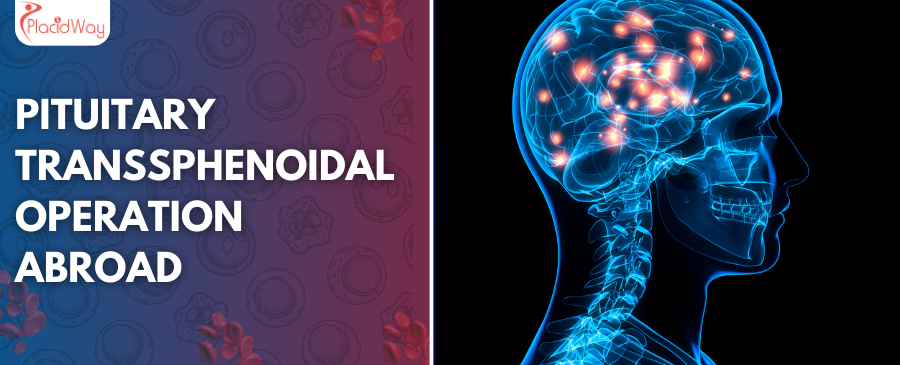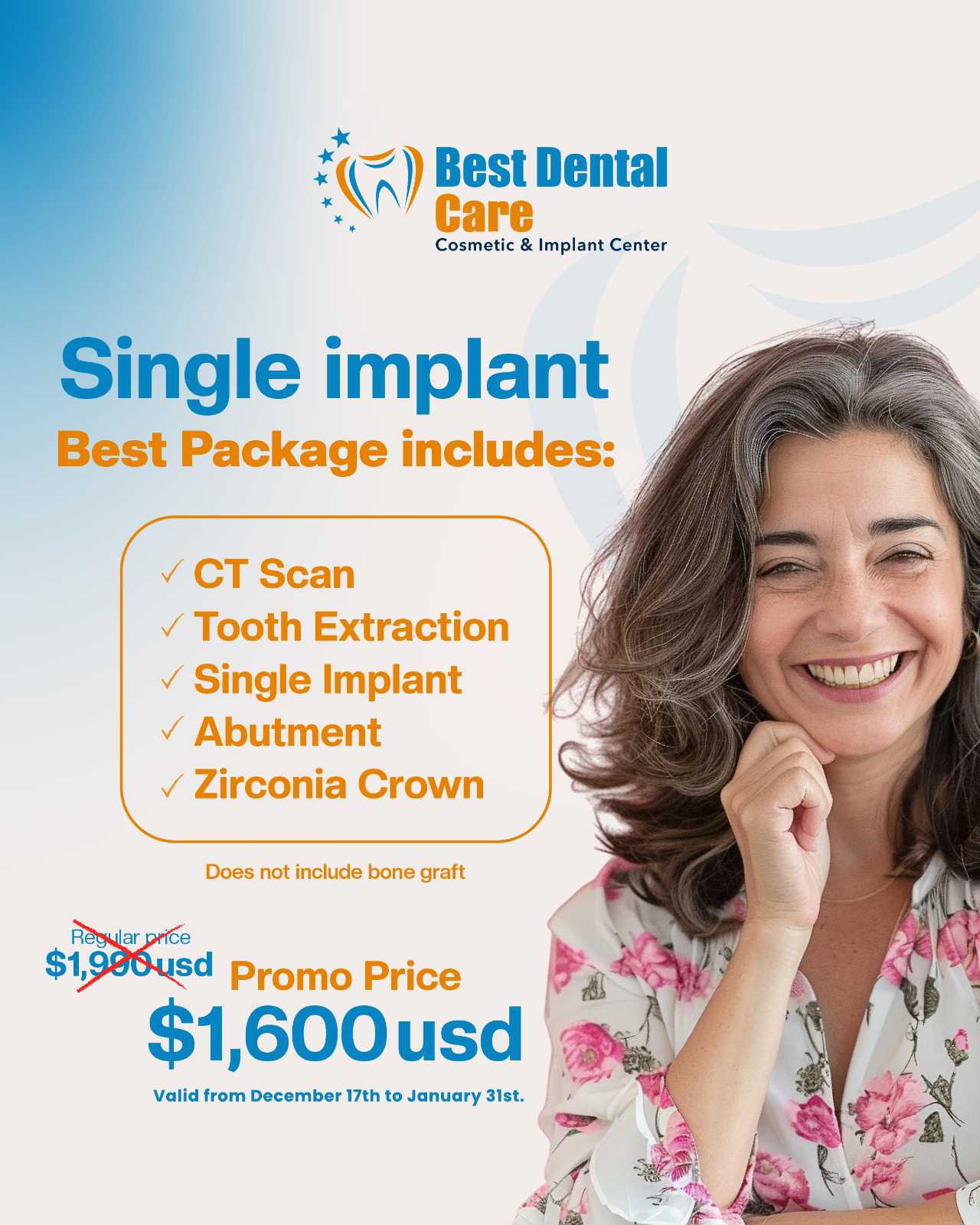
Navigating Pituitary Transsphenoidal Operation: Your Comprehensive Guide
Discovering you have a pituitary tumor can be daunting, bringing a wave of questions and concerns about your health and future. The good news is that for many, a highly effective treatment exists: the Pituitary Transsphenoidal Operation. This sophisticated, minimally invasive surgical procedure is a beacon of hope for individuals experiencing symptoms related to pituitary gland issues.
This operation is precisely designed to remove tumors from the pituitary gland, a small but vital gland located at the base of your brain, behind your nose. What makes the transsphenoidal approach so remarkable is its ability to access the pituitary gland without needing an external incision on the face or scalp. Instead, surgeons work through natural pathways – your nose and the sphenoid sinus – leading to less pain, faster recovery, and minimal scarring.
Patients often seek this surgery when a pituitary tumor (adenoma) grows large enough to cause problems. These problems can range from debilitating headaches and vision changes to significant hormonal imbalances that affect energy levels, mood, weight, and even fertility. Conditions like Cushing's disease, acromegaly, and prolactinomas are frequently managed through this surgical route when medication isn't enough or when the tumor poses an immediate threat to vital functions.
For those exploring options for pituitary tumor surgery, understanding the process, what to expect, and potential recovery is crucial. Moreover, the landscape of medical tourism offers compelling advantages, providing access to world-class neurosurgeons and state-of-the-art facilities at more accessible costs for procedures like transsphenoidal hypophysectomy. This guide will walk you through every aspect, from symptoms and causes to recovery and global treatment options, empowering you to make informed decisions about your health journey.
What symptoms might indicate a pituitary tumor?
Pituitary tumors, though often benign, can cause a variety of symptoms depending on their size, location, and whether they produce excess hormones. These symptoms can be subtle at first, leading to delayed diagnosis. Patients often search for "headaches and vision problems pituitary," or "hormone imbalance pituitary tumor symptoms."
- Headaches: Persistent headaches, often behind the eyes or in the forehead, can be a common sign, especially if the tumor is pressing on surrounding structures.
- Vision Problems: A tumor growing upward can press on the optic nerves, leading to peripheral vision loss (bitemporal hemianopsia), blurred vision, or double vision.
- Hormonal Imbalances:
- Acromegaly (excess growth hormone): Enlargement of hands, feet, and facial features, joint pain, excessive sweating.
- Cushing's Disease (excess cortisol): Weight gain, particularly around the midsection and face ("moon face"), easy bruising, high blood pressure, muscle weakness, mood changes.
- Prolactinoma (excess prolactin): Irregular menstrual periods or absence of periods in women, infertility, galactorrhea (milky breast discharge not related to childbirth), decreased libido and erectile dysfunction in men.
- Hypopituitarism (underproduction of hormones): Fatigue, weakness, weight loss or gain, low blood pressure, sensitivity to cold, loss of body hair, decreased libido, menstrual irregularities.
- Nausea and Vomiting: Particularly with larger tumors or rapid growth, due to increased pressure.
- Changes in Smell or Taste: Less common, but possible if the tumor affects nearby nerves.
- Dizziness or Fainting: Especially when standing up quickly, often due to low blood pressure from hormonal issues.
What causes pituitary tumors and who is at risk?
For most people, the cause of pituitary tumors remains a mystery. They typically arise sporadically, meaning there's no clear genetic link or environmental factor. Patients often search "what causes pituitary adenoma" or "pituitary tumor risk factors."
- Abnormal Cell Growth: Pituitary tumors are essentially benign (non-cancerous) growths resulting from an uncontrolled proliferation of cells within the pituitary gland.
- Genetic Syndromes: A small percentage of pituitary tumors are associated with inherited genetic conditions. The most well-known is Multiple Endocrine Neoplasia, type 1 (MEN1), which causes tumors in the pituitary, parathyroid, and pancreas. Other rare genetic conditions like Carney complex and isolated familial acromegaly can also predispose individuals to pituitary tumors.
- No Definitive Lifestyle Links: Unlike many other cancers, pituitary tumors are not strongly linked to lifestyle factors such as diet, smoking, or exposure to toxins.
- Age and Gender: Pituitary tumors can occur at any age but are most commonly diagnosed in adults. Some types, like prolactinomas, are more prevalent in women.
It's important to remember that having risk factors does not guarantee you will develop a pituitary tumor, and many people who develop them have no identifiable risk factors.
What is a Pituitary Transsphenoidal Operation and how is it performed?
The Pituitary Transsphenoidal Operation is the gold standard for removing most pituitary tumors. It’s a delicate procedure that leverages natural access points to reach the brain's base.
How it's Performed:
- Anesthesia: The procedure is performed under general anesthesia, meaning you'll be asleep and won't feel any pain.
- Access Point: The surgeon works through your nostrils. A small incision is made in the back of the nasal cavity to access the sphenoid sinus – an air-filled cavity behind your nose and below your brain.
- Visualization:
- Endoscopic Method: Most commonly, a small, flexible tube with a camera (endoscope) is inserted. This provides a high-definition, magnified view of the surgical field on a monitor. This is often referred to as endoscopic pituitary surgery.
- Microscopic Method: In some cases, a high-powered microscope is used for visualization, requiring a slightly wider opening to allow direct viewing through the nose.
- Tumor Removal: Specialized instruments are passed through the sphenoid sinus to carefully remove the pituitary tumor. The goal is to remove as much of the tumor as safely possible while preserving healthy pituitary tissue.
- Closure: Once the tumor is removed, the surgeon may pack the sphenoid sinus with a small piece of fat or tissue (often taken from the thigh or abdomen) to prevent cerebrospinal fluid (CSF) leaks. Nasal packing may also be used temporarily.
The entire operation typically takes 2 to 4 hours, depending on the tumor's size and complexity. Patients frequently search for "how long is pituitary surgery?" or "endoscopic pituitary tumor removal technique."
Am I a suitable candidate for Pituitary Transsphenoidal Operation?
Deciding whether you're a candidate for a pituitary tumor removal surgery involves a thorough evaluation by a neurosurgeon and endocrinologist. Key factors include:
- Tumor Type and Size: The transsphenoidal approach is ideal for most pituitary adenomas, especially those that are not excessively large (macro-adenomas up to 3-4 cm) and confined to the sella turcica (the bony cradle housing the pituitary gland). Very large tumors extending significantly into other brain areas might require a transcranial (craniotomy) approach, though transsphenoidal is often attempted first.
- Symptoms: Patients experiencing symptoms such as vision loss, severe headaches, or significant hormonal imbalances due to the tumor are strong candidates.
- Overall Health: You must be in reasonable health to tolerate general anesthesia and surgery. Chronic conditions will be assessed, and adjustments might be made to medications.
- Prior Treatment Failure: For some hormone-producing tumors (e.g., prolactinomas), medication is the first line of treatment. If medication is ineffective or poorly tolerated, surgery becomes an option.
- Anatomical Suitability: Your specific nasal and sphenoid sinus anatomy will be reviewed through imaging (MRI, CT scans) to ensure the transsphenoidal route is feasible and safe.
Your medical team will discuss the benefits and risks, considering your unique situation, to determine if this procedure is the best course of action. People often ask, "When is pituitary surgery necessary?" or "who is eligible for transsphenoidal surgery?"
What should I expect during recovery after pituitary surgery?
Recovery is a crucial part of the journey. While transsphenoidal surgery is minimally invasive, it's still a significant procedure. Patients frequently search for "recovery after pituitary surgery timeline" or "what to expect after transsphenoidal surgery."
- Immediate Post-Op (Hospital Stay):
- You'll typically stay in the hospital for 2 to 4 days.
- You might experience nasal congestion, mild headaches, and some facial swelling.
- Nasal packing, if used, is usually removed within 24-48 hours.
- Your hormone levels will be closely monitored, and you may receive steroid replacement initially.
- First Few Weeks at Home (2-4 Weeks):
- Fatigue: It's normal to feel tired. Rest is essential.
- Nasal Care: Avoid blowing your nose, sneezing forcefully, or straining. Nasal saline rinses may be recommended.
- Activity Restrictions: No heavy lifting, bending over, or strenuous activities for several weeks to prevent increased intracranial pressure and potential CSF leaks.
- Diet: Usually a soft diet initially, progressing as tolerated.
- Hormone Replacement: Many patients require temporary or permanent hormone replacement therapy (e.g., cortisol, thyroid hormone) after surgery, especially if the pituitary gland's function is impacted. This will be managed by an endocrinologist.
- Long-Term Recovery (Months):
- Full recovery can take several weeks to a few months.
- Regular follow-up appointments with your neurosurgeon and endocrinologist are vital to monitor hormone levels and ensure the tumor does not recur.
- Vision improvements, if applicable, may be gradual.
What are the potential risks and side effects of this surgery?
While generally safe and effective, like any surgical procedure, the Pituitary Transsphenoidal Operation carries potential risks and side effects. Patients often inquire about "risks of pituitary tumor removal" or "is pituitary surgery dangerous?"
- Cerebrospinal Fluid (CSF) Leak: This is one of the more common complications, where brain fluid leaks through the nasal cavity. It usually resolves with conservative management but may require further intervention.
- Diabetes Insipidus: Temporary or, rarely, permanent imbalance in water regulation due to damage to the posterior pituitary, requiring medication.
- Hemorrhage/Bleeding: Though uncommon, bleeding can occur during or after surgery.
- Infection: Risk of meningitis or sinusitis, requiring antibiotics.
- Pituitary Insufficiency (Hypopituitarism): Damage to healthy pituitary tissue can result in reduced production of one or more pituitary hormones, necessitating lifelong hormone replacement therapy.
- Vision Changes: While the surgery aims to improve vision, rare cases of temporary or permanent worsening of vision can occur.
- Nasal Complications: Nasal congestion, crusting, or septum perforation, usually temporary.
- Recurrence: The tumor may grow back, particularly if it couldn't be entirely removed.
- Carotid Artery Injury: Extremely rare but serious, due to the close proximity of the carotid arteries.
Your surgical team will discuss these risks in detail, and measures are taken to minimize their occurrence.
How does the cost of Pituitary Transsphenoidal Operation vary globally?
The financial aspect of medical procedures is a significant concern for many, especially when considering complex surgeries like the Pituitary Transsphenoidal Operation. Costs can vary dramatically based on location, hospital reputation, surgeon's fees, length of stay, and included services. Patients often search for "cost of pituitary surgery abroad" or "affordable pituitary tumor removal."
Pituitary Transsphenoidal Operation Cost Comparison (Estimated)
| Country | Estimated Cost Range (USD) | Key Factors |
|---|---|---|
| United States | $40,000 - $100,000+ | High surgeon fees, hospital charges, complex insurance system. |
| United Kingdom | $35,000 - $70,000+ | Public healthcare (NHS) means long waits, private care is expensive. |
| India | $10,000 - $20,000 | World-class facilities, highly skilled surgeons, significantly lower operational costs. |
| Turkey | $12,000 - $25,000 | Modern hospitals, experienced doctors, competitive pricing, popular destination. |
| Mexico | $15,000 - $30,000 | Proximity for North American patients, growing medical tourism infrastructure. |
| Thailand | $14,000 - $28,000 | Excellent patient care, luxurious facilities, popular for medical tourists. |
*These figures are estimates and can vary. They typically include surgeon fees, hospital stay, and basic post-operative care, but may not cover travel, accommodation, or extensive follow-up medications/therapies.
Why consider traveling abroad for pituitary tumor surgery?
For many, the decision to undergo a major surgery like a Pituitary Transsphenoidal Operation abroad is driven by compelling advantages:
- Significant Cost Savings: As seen in the table above, the primary driver for medical tourism is often the substantial reduction in costs, without compromising on quality. Savings can be 50% to 70% compared to Western countries.
- Access to Specialized Expertise: Some countries are renowned for specific medical fields. For example, certain hospitals in India or Turkey house neurosurgery departments with high volumes of pituitary surgeries, offering specialized expertise.
- Reduced Wait Times: In countries with universal healthcare, waitlists for non-emergency surgeries can be long. Traveling abroad provides immediate access to treatment.
- State-of-the-Art Facilities and Technology: Many international hospitals catering to medical tourists boast advanced technology, modern infrastructure, and highly trained staff comparable to, or even exceeding, those in Western nations.
- Privacy and Anonymity: Some patients prefer the discretion and anonymity that traveling for medical care can offer.
- Opportunity for Travel: For some, combining recovery with cultural exploration is an added bonus, offering a unique travel experience.
Patients considering this often search for "benefits of medical tourism for pituitary surgery" or "why go abroad for brain tumor surgery."
Which countries offer the best value and quality for pituitary operations?
When seeking quality and value, several countries have established themselves as leaders in medical tourism for complex procedures like pituitary surgery:
- India: Renowned for its JCI-accredited hospitals, highly experienced neurosurgeons, and incredibly competitive pricing. Major cities like Delhi, Mumbai, and Bangalore offer excellent options.
- Turkey: A rapidly growing medical tourism hub with state-of-the-art hospitals, particularly in Istanbul and Ankara. Turkish surgeons are highly skilled, and the facilities are modern, offering a blend of quality and affordability.
- Mexico: Especially popular for patients from the United States and Canada due to its geographical proximity. Cities like Tijuana, Monterrey, and Guadalajara have excellent medical infrastructure and offer significant cost savings.
- Thailand: Known for its luxurious private hospitals, world-class patient care, and warm hospitality, particularly in Bangkok. While slightly more expensive than India or Turkey, it offers a premium experience.
- South Korea: A leader in advanced medical technology and highly specialized care, offering top-tier neurological centers. It's often chosen for very complex cases, though costs might be higher than other Asian destinations.
When searching for "best countries for pituitary surgery" or "affordable neurosurgery abroad," these destinations frequently appear at the top.
What to expect when traveling for this procedure?
Preparing for medical travel requires careful planning. Here’s a general overview of what to expect:
- Pre-Trip Consultation: You'll typically start with online consultations, sharing your medical records, MRI scans, and lab results with potential clinics/surgeons. PlacidWay can help facilitate this, getting you free quotes and treatment plans.
- Travel Logistics: Once you choose a clinic, you'll need to arrange flights, accommodation (for yourself and a companion, which is highly recommended), and potentially a medical visa. Many medical tourism facilitators offer assistance with these arrangements.
- Arrival and Pre-Operative Assessments: Upon arrival, you'll undergo in-person consultations, a physical exam, and any final diagnostic tests. This ensures everything is in order before surgery.
- Surgery and Hospital Stay: The Pituitary Transsphenoidal Operation typically involves a 2-4 day hospital stay for recovery and monitoring.
- Post-Operative Recovery Abroad: After discharge, you'll likely need to remain in the destination country for an additional 1-2 weeks for initial recovery and follow-up appointments. This allows the surgical team to monitor your healing and address any immediate concerns.
- Return Home: Once cleared by your surgeon, you can return home. You’ll receive detailed post-operative instructions and often a medical report for your local doctors.
Patients often search "medical travel for brain surgery" or "planning international surgery."
How can I ensure safety and quality when choosing a clinic abroad?
Safety and quality are paramount. Taking these steps can help you make an informed and confident decision:
- Accreditation: Look for international accreditations such as Joint Commission International (JCI) or ISO certification. These indicate that the hospital meets rigorous global standards for patient safety and quality of care.
- Surgeon Credentials and Experience: Verify the neurosurgeon's qualifications, board certifications, and experience specifically with pituitary surgeries. Inquire about their success rates and how many such procedures they perform annually.
- Technology and Facilities: Ensure the hospital uses modern equipment for diagnostics, surgery (e.g., endoscopic navigation systems), and post-operative care.
- Patient Testimonials and Reviews: Seek out genuine patient reviews and success stories. Medical tourism facilitators often provide these.
- Communication: Ensure there are clear communication channels, including language translation services, throughout your journey.
- All-Inclusive Packages: Understand what your treatment package includes (surgery, hospital stay, medications, follow-ups) to avoid hidden costs.
- Medical Tourism Facilitators: Companies like PlacidWay specialize in vetting clinics, providing transparent information, and assisting with all logistical aspects, significantly enhancing safety and peace of mind.
Searches like "international hospital accreditation" or "how to choose a neurosurgeon abroad" are common here.
What are patient success stories from abroad for pituitary surgery?
The true measure of success lies in the stories of individuals whose lives have been transformed. While specific names and details vary, numerous patients have found profound success by opting for Pituitary Transsphenoidal Operation abroad:
- Case Example (Illustrative): "Sarah, a 45-year-old from Canada, suffered from severe headaches and debilitating vision loss due to a pituitary adenoma. Facing a long waitlist and high costs at home, she chose a JCI-accredited hospital in India. Within weeks, she underwent a successful transsphenoidal operation. Her vision began to improve significantly within days, and her headaches vanished. She spent two weeks recovering comfortably in India before returning home, grateful for the specialized care and considerable savings."
- Hormonal Balance Restored: Many patients suffering from conditions like Cushing's disease or acromegaly find their hormonal levels returning to normal after surgery abroad, allowing them to reduce or eliminate long-term medication and reclaim their health.
- Improved Quality of Life: Beyond the medical outcomes, patients often praise the personalized attention, cultural experience, and comprehensive support systems provided by international clinics and facilitators. The combination of successful surgery and a smooth, supportive medical journey contributes to high patient satisfaction.
- Access to Rare Expertise: For individuals with rare or complex pituitary conditions, seeking specialized neurosurgeons in countries renowned for their expertise, often provides life-changing results that might not have been readily available in their home country.
These narratives underscore the growing trust and positive experiences associated with seeking high-quality, affordable pituitary surgery through medical tourism. Searching for "pituitary surgery abroad success stories" often yields inspiring accounts.
Take the Next Step with PlacidWay
Ready to explore treatment options abroad? Discover top clinics, compare prices, and get a free quote tailored to your needs with PlacidWay.
Best Neurology Treatment Center | Cheap Neurology Treatment Packages





.png)
.png)
.png)
.png)

Share this listing